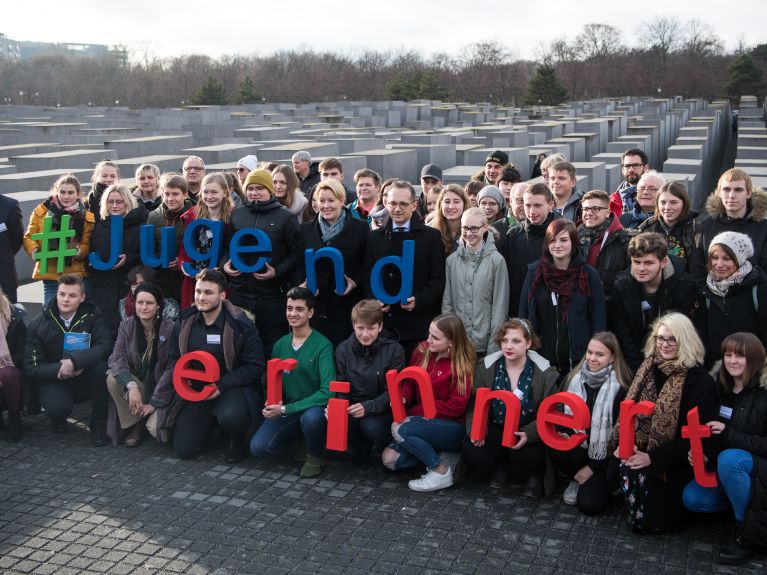"Remembering is a guarantor of democracy"
'Young People Remember International' finds digital ways to enable young people to engage with memorial sites.

"Remembering is a guarantor of democracy. What we know about Nazi injustice and how we keep this knowledge and memories alive determines our actions in the present and in the future," says Andrea Despot, CEO of the Foundation Remembrance, Responsibility and Future (EVZ). Together with the Federal Foreign Office, the Foundation has launched a project called 'Young People Remember International': "If we as a society are to oppose inhuman ideologies and discrimination of all kinds, we need to understand what happened back then. This requires a diverse and ongoing examination of history on many levels: in educational work, in the media, in families and in projects," Despot stresses.
We want to turn places of remembrance into places of learning both within and beyond Europe.
For this reason, the Federal Government launched 'Young People Remember International' in 2018 and motivates young people to visit memorial sites, thus countering the growing tide of anti-Semitism. Since the end of 2025, 25 projects have been funded as part of the international section of this federal programme: "This helps a younger generation find their own access to our history. We want to turn places of remembrance into places of learning both within and beyond Europe and thus build bridges to the future," says Michelle Müntefering, Minister of State at the Federal Foreign Office.
Because of COVID-19,this is currently only possible to a limited extent; even so, young people are trying to commemorate Holocaust Memorial Day on 27 January. The Max-Windmüller-Gymnasium (High School) and its Israeli cooperation partner, for example, are launching an advertising guerilla campaign in Germany and Israel with their student groups to draw attention to the new Instagram account. In addition, they are taking part in the #weremember campaign.
The Kreisjugendring Siegen-Wittgenstein, a district youth organization, together with its Israeli partner Emek Hefer, has also come up with something special for this day. At an event called 'Remembrance in the Living Room', the oldest survivor of the Theresienstadt ghetto and Nazi concentration camp, Hannah Malka, will tell her story in German via Zoom; it will be simultaneously translated into Hebrew. Afterwards, the German and Israeli listeners will be able to ask questions.
Hybrid path: commemoration in the digital age
Andrea Despot knows all about the special difficulties during the Corona pandemic: "Memorials are places of learning that have the most impact on me when I am there, feeling, perceiving. Transporting learning with all your senses into virtual spaces is always going to be incomplete. At the same time, digital learning offers advantages: more accessibility for everyone from any location; it also allows individual access and lets people learn at their own speed. I believe we will develop historical-political education formats that can combine the best of both worlds."
Dieses YouTube-Video kann in einem neuen Tab abgespielt werden
YouTube öffnenThird party content
We use YouTube to embed content that may collect data about your activity. Please review the details and accept the service to see this content.
Open consent form


